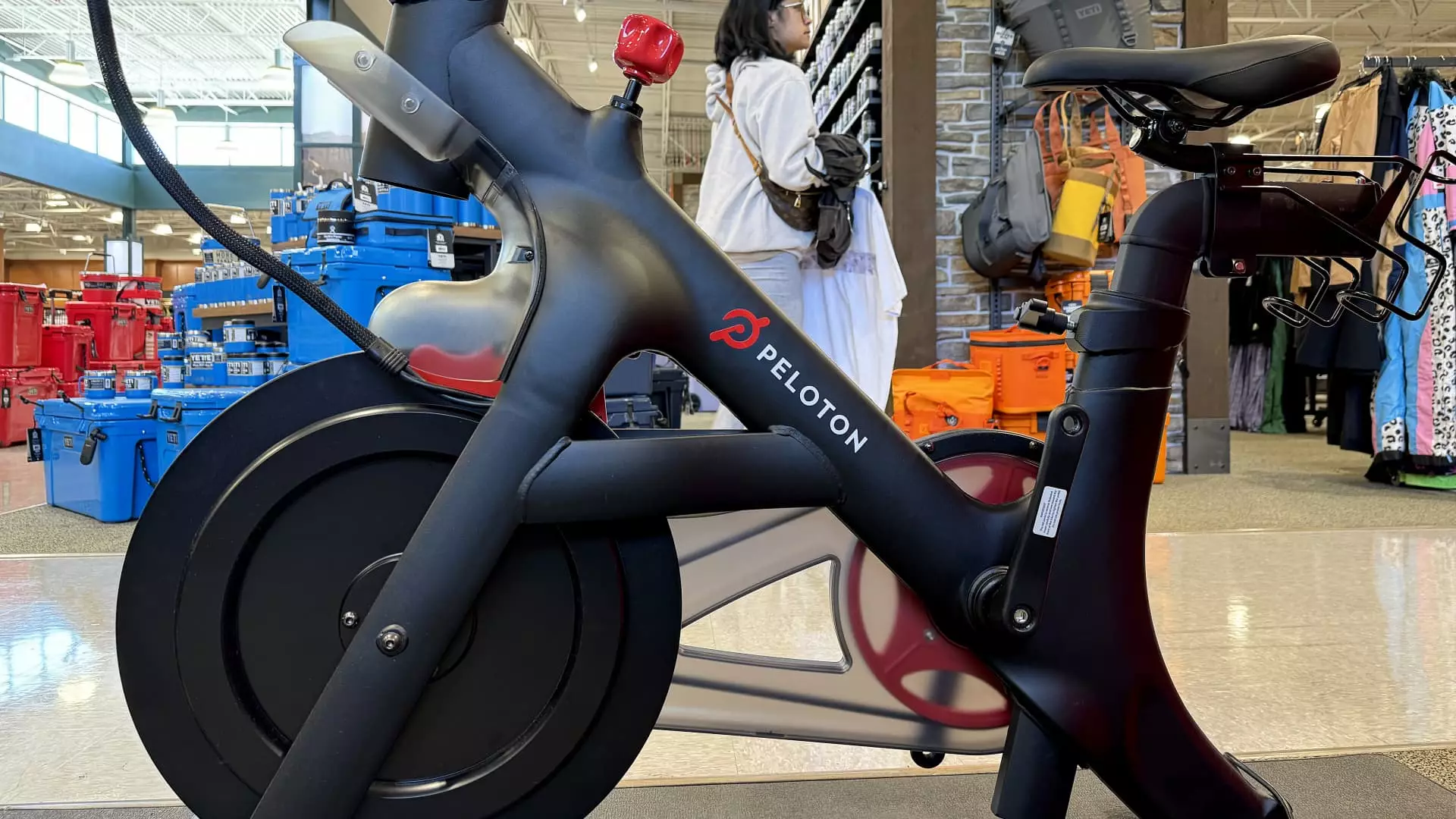In a striking pivot, Peloton has unveiled its latest endeavor — a resale marketplace dubbed Repowered, aimed at breathing new life into its underperforming equipment. This audacious launch comes in the wake of countless bikes and treadmills languishing unused in homes across the nation, a testament to the brief but intense infatuation many had with the brand during the pandemic. As curiosity surrounds this bold foray into the secondary market, one must question whether this initiative is a genuine effort to recapture a fading audience or merely a band-aid solution for an ailing company.
The Mechanics of Repowered
At the heart of Repowered lies a generative AI tool designed to assist sellers in pricing their used Peloton gear. While the idea of leveraging technology to streamline sales seems promising, it also raises eyebrows. Could relying on AI cloud the human intuition necessary to accurately value these items, or might it create a price inflation scenario similar to what one sees in many online marketplaces? Sellers are certain to appreciate the 70% cut of the sales price, but will that be enough to draw them away from established platforms like Facebook Marketplace, where the resale of used fitness equipment is already thriving?
In addition to the revenue sharing model, Repowered promises discounts for sellers looking to upgrade, while buyers benefit from slashed activation fees on used equipment. The concept is sound — create a system where users can trade in lightly used items while getting a discount on new purchases — yet the execution remains in the hands of Peloton. With a history of missteps and elite exclusivity, the question arises: can Peloton foster a community that encourages mutual support among users or will Repowered simply mirror the pitfalls of its predecessors?
A Potential Lifeline for a Stagnant Brand
Peloton’s move comes not merely as a response to dwindling sales, but also as a recognition of changing consumer habits. The fitness industry is witnessing a paradigm shift where used equipment is becoming a feasible option for cash-strapped consumers. The fact that Peloton is embracing this trend is commendable, but it’s accompanied by a discernible skepticism. Are they genuinely prioritizing their customers’ financial situations or merely trying to expand their revenue streams by tapping into the burgeoning resale market?
Data suggesting that new members purchasing used machines exhibit lower churn rates than subscription rentals should be enticing for Peloton. However, one must wonder about their real motivation behind this initiative. Will they genuinely seek to create an accessible platform that caters to all users or will they simply manipulate the model to perpetuate their existing subscription-driven business?
Competition in a Crowded Market
By launching Repowered, Peloton directly competes with emerging players like Trade My Stuff, a startup that has already carved out a niche for itself in the resale of Peloton equipment. There’s irony in the brand’s previous attempts to court collaboration before choosing to go it alone; there’s a thin line between innovation and alienation in business dealings. Competitors are rearing to fill any vacuum Peloton’s miscalibrations may create. This is a high-stakes game, and Peloton must ensure that its reputation does not take a further hit should Repowered falter.
Peloton’s marketplace is also launching in major metropolitan areas first, creating an aura of exclusivity that seems contradictory to the communal spirit it aims to promote through Repowered. By limiting access to key cities initially, Peloton runs the risk of alienating potential users who reside outside these hubs. As anyone engaged in retail knows, a premium price tag or de facto exclusivity can stifle broader appeal — and in the face of mounting competition, Peloton cannot afford to limit its audience.
In embarking on this marketplace venture, Peloton has the opportunity to either rejuvenate its brand through community engagement or cement its status as a one-hit wonder. The success of Repowered will ultimately rely on Peloton’s ability to adapt to the fickle nature of consumer behavior by cultivating a genuine connection with its audience. In a world where loyalty is earned, not demanded, will Repowered foster a long-term loyalty to the brand or simply serve as yet another chapter in Peloton’s tumultuous story? The answer remains to be seen, but the stakes are undeniably high.


Leave a Reply